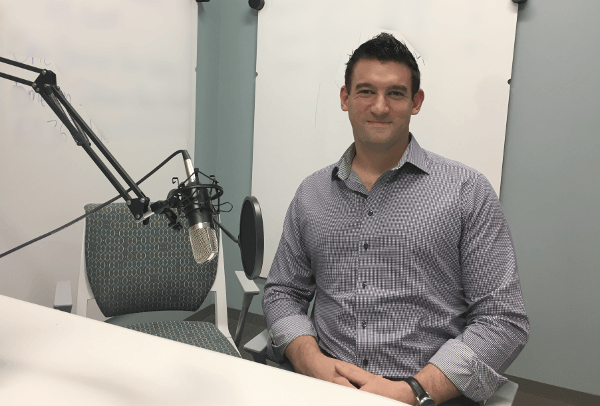Emerson’s Joel Galmor joins our continuing podcast series on 5 Questions for an Emerson Expert. Joel is a member of our Modernization Solutions Consulting team. The team creates wiring and control solutions, develops engineering tools, and provides subject matter expertise to minimize cost and risk in control system and safety instrumented system modernization projects.
Send me an email or LinkedIn message if there is an Emerson expert you’d like me to interview as well as the questions you’d like me to ask them.
Transcript
Jim: Hi, everyone. I’m Jim Cahill with another edition of our 5 Questions for an Emerson Expert podcast series. I’m joined today by Joel Galmor. Joel helps our customers modernize and migrate their control and safety systems in order to improve levels of safety and performance. He has around a decade of experience working with process manufacturers and producers. Welcome, Joel.
Joel: Thanks, Jim.
Jim: So, let’s start out. When growing up, what led you to study in one of the fields of STEM? I guess, specifically, electronics, physics, and electrical engineering in your case?
Joel: Well, I was that kid who would always ask questions and stick his nose in places where it didn’t belong, and constantly unscrewing chassis and opening radios, and what-not, always tinkering away, looking what’s inside. So, curiosity is a short answer for that, I guess. And then just sliding into mathematics and natural sciences due to my father’s guidance, and off I went.
Jim: That’s great. That natural curiosity, I think, sparks a lot of engineers. So, what led you, specifically, into the field of process automation? And, I guess, specifically helping manufacturers modernize their plants?
Joel: The process automation part was actually unforeseen turn of events. I ended up in Norway working for an EPC [engineering, procurement, and construction] contractor after spending a year in Australia. I didn’t really consider that field at all. I was thinking Ericsson, because I’m from Sweden, and stuff like that when I was finished with college. But there I was working with customers like Statoil, etc.
Jim: We all have interesting paths getting us from here to there. So, I guess, before we started this, you were talking about going back and forth. Can you tell us about any recent challenges that you discussed with one of our customers?
Joel: Right. There’s more than one, but the common thread is very often risk reduction. And the question is asked, how can you guarantee that this is done in a safe manner from a process point of view, from an operations point of view, and what can you do to reduce the risk, etc., and compared to your competitors, they have this type of solution and so on and so forth. So, that’s a lot of the conversations I have had lately is explaining that what we’re suggesting they do is actually very similar to what the other the people might suggest, but then also including the benefits of going with our way of doing it.
Jim: So, as you get outside of our wonderful world of process automation, what do you enjoy doing in your spare time?
Joel: Wow, that’s…that list is pretty long, unfortunately. Doesn’t really pair up with the amount of time you have. When I’m not doing things with my wife around the house, I like to dig holes in the ground with my golf clubs. I kite surf a lot when I’m in a place where there is water and wind. And if there’s snow, which there hasn’t been too much of here in Texas since I moved here, I like to go snowboarding and snow kiting as well. So, those are few of my passions. Other than that, I play basketball over lunch hour, here behind the office, just to get a little exercise.
Jim: I could almost have guessed that from your stature here, that you’d be a force out there. Okay, and I guess finally to wrap this up, for someone just getting started in the field of process automation, what advice would you give them to help them accelerate their learning curve?
Joel: Be curious, don’t be afraid of asking questions, don’t be afraid to make mistakes. And something that I, personally, have done is I’ve thrown myself out there and tried to get some international experience in order to get some other perspectives on points of view with me in my career moving forward. So, if there’s an opportunity for you to do something international, go for it, you’ll learn a lot from it.
Jim: Well, that sounds like really great advice. Well, thanks for joining us today, Joel.
Joel: Thank you, Jim. It’s a pleasure.





